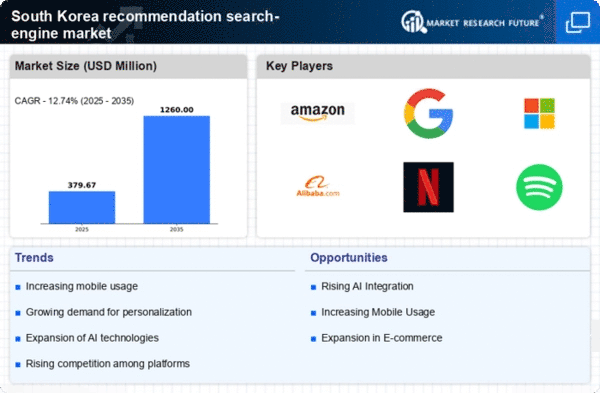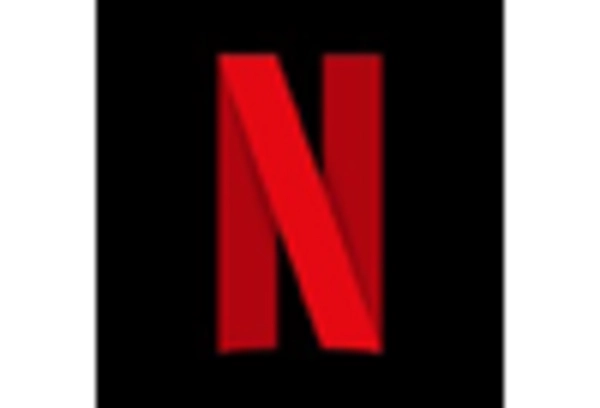Increased Mobile Device Usage
The recommendation search-engine market in South Korea is witnessing a surge in mobile device usage, which is reshaping how consumers access information. As of 2025, over 85% of internet users in South Korea utilize mobile devices for online activities, including shopping and content consumption. This trend necessitates the optimization of recommendation systems for mobile platforms, ensuring seamless user experiences. Businesses that effectively leverage mobile-friendly recommendation engines are likely to capture a larger share of the market. The recommendation search-engine market must prioritize mobile optimization to cater to the growing number of mobile users.
Rising Demand for Tailored Content
The recommendation search-engine market in South Korea experiences a notable increase in demand for tailored content. As consumers become more discerning, they seek personalized experiences that resonate with their preferences. This trend is reflected in the growing number of users engaging with platforms that utilize recommendation algorithms. In 2025, it is estimated that approximately 70% of online users in South Korea prefer platforms that offer personalized recommendations. This shift indicates a significant opportunity for businesses to enhance user satisfaction and retention through customized content delivery. The recommendation search-engine market must adapt to these evolving consumer expectations to remain competitive.
Evolving Consumer Behavior and Expectations
The recommendation search-engine market in South Korea is significantly impacted by evolving consumer behavior and expectations. As users become more accustomed to instant gratification, they expect quick and relevant recommendations. This shift is evident in the increasing reliance on recommendation engines for decision-making processes. In 2025, it is anticipated that 60% of consumers will rely on recommendations when making purchases. This trend underscores the importance of developing agile recommendation systems that can adapt to changing consumer preferences. The recommendation search-engine market must remain vigilant in understanding these dynamics to enhance user engagement.
Advancements in Machine Learning Technologies
The recommendation search-engine market in South Korea is significantly influenced by advancements in machine learning technologies. These innovations enable more accurate predictions of user preferences, thereby enhancing the effectiveness of recommendation systems. In 2025, the market is projected to grow by 15% as companies increasingly adopt machine learning techniques to refine their algorithms. This growth is driven by the need for more sophisticated data analysis and the ability to process vast amounts of information in real-time. Consequently, the recommendation search-engine market is likely to see a surge in investments aimed at developing cutting-edge machine learning solutions.
Regulatory Changes and Compliance Requirements
The recommendation search-engine market in South Korea faces challenges due to regulatory changes and compliance requirements. As data privacy concerns grow, the government is implementing stricter regulations to protect consumer information. In 2025, it is expected that compliance costs for businesses in the recommendation search-engine market will increase by 20%. This necessitates the development of transparent and secure recommendation systems that adhere to regulatory standards. Companies that proactively address these compliance challenges are likely to gain a competitive advantage, as consumers increasingly favor platforms that prioritize data security.
















